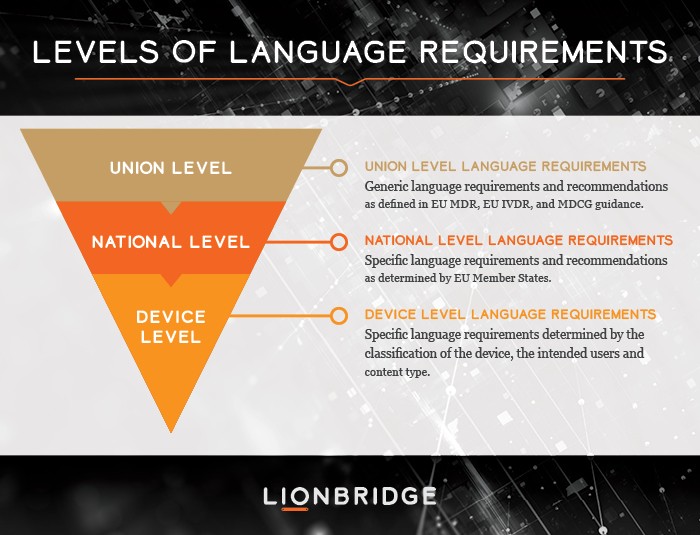AI Solutions
Additional Services

Stranger Danger: How Well Do You Know Your AI?
Global street smarts through culturalization.


Case Study: Multilingual Retail Marketing
New AI Content Creation Solutions for a Sports and Apparel Giant

- RESOURCES


In 2017, two new European Regulations published on EUR-Lex turned the world upside down for medical device manufacturers wanting to place their medical devices in the European market. The MDR and the IVDR replace old medical device directives that date back to the 1990s. As of the Date of Application of the IVDR on 26 May 2022, the transition period is now complete for both of these new Regulations. These Regulations are now in full effect, although a few devices have exceptions and may stay on the market for a further "grace period”.
26 May 2022 also marks the first anniversary of the Date of Application of the MDR. During the past year, Lionbridge has been partnering with our MedTech clients to find suitable and flexible solutions to the language challenges emerging from the regulatory requirements under these new reforms. The journey has just begun, and we are committed to helping clients centralize translations and leverage language assets throughout the device life cycle.

Both Regulations enforce life cycle-long controls over manufacturers’ device portfolio and public disclosure of performance and safety of devices via the EUDAMED database. There has never been a better time for MedTech manufacturers to take a solid look at the language strategy across the device portfolio.
The MDR and IVDR present similar burdens of content and language challenges for manufacturers. This workload is due to the increase in new documentation requirements during the device life cycle for both device types as well as new transparency requirements for medical technologies placed on the EU market.
Lionbridge has continuously presented our views and recommendations on how manufacturers can tackle language barriers with our MDR series. We have expanded our insights to include the IVDR with the publication of our new IVDR white paper.

One recommendation we continue to offer is that manufacturers should plan translations and language assets along with other device development and design control activities.
The EU is a multilingual region. Despite harmonization being a major incentive for upgrading the old EU Directives to Regulations, language remains a national matter that is determined by each National Competent Authority. We encourage manufacturers to assess language as a layered activity in order to help control and optimize language activities across your device portfolios.




